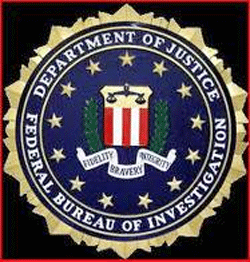I wrote a blog about the Nigerian scam sometime ago. I’m repeating this warning from the FBI since I know someone who fell for this scheme. The person would not tell me how much he lost, and he was somewhat sheepish about it.
So anyhow, here goes, hopefully it will prevent someone from going off the deep end and losing a lot of money to these dirt bags.
“Nigerian letter frauds combine the threat of impersonation fraud with a variation of an advance fee scheme in which a letter mailed from Nigeria offers the recipient the “opportunity” to share in a percentage of millions of dollars that the author—a self-proclaimed government official—is trying to transfer illegally out of Nigeria. The recipient is encouraged to send information to the author, such as blank letterhead stationery, bank name and account numbers, and other identifying information using a fax number provided in the letter. Some of these letters have also been received via e-mail through the Internet. The scheme relies on convincing a willing victim, who has demonstrated a “propensity for larceny” by responding to the invitation, to send money to the author of the letter in Nigeria in several installments of increasing amounts for a variety of reasons.
Payment of taxes, bribes to government officials, and legal fees are often described in great detail with the promise that all expenses will be reimbursed as soon as the funds are spirited out of Nigeria. In actuality, the millions of dollars do not exist, and the victim eventually ends up with nothing but loss. Once the victim stops sending money, the perpetrators have been known to use the personal information and checks that they received to impersonate the victim, draining bank accounts and credit card balances. While such an invitation impresses most law-abiding citizens as a laughable hoax, millions of dollars in losses are caused by these schemes annually. Some victims have been lured to Nigeria, where they have been imprisoned against their will along with losing large sums of money. The Nigerian government is not sympathetic to victims of these schemes, since the victim actually conspires to remove funds from Nigeria in a manner that is contrary to Nigerian law. The schemes themselves violate section 419 of the Nigerian criminal code, hence the label “419 fraud.”
Tips for Avoiding Nigerian Letter or “419” Fraud:
- If you receive a letter from Nigeria asking you to send personal or banking information, do not reply in any manner. Send the letter to the U.S. Secret Service, your local FBI office, or the U.S. Postal Inspection Service. You can also register a complaint with the Federal Trade Commission Complaint Assistant.
- If you know someone who is corresponding in one of these schemes, encourage that person to contact the FBI or the U.S. Secret Service as soon as possible.
- Be skeptical of individuals representing themselves as Nigerian or foreign government officials asking for your help in placing large sums of money in overseas bank accounts.
- Do not believe the promise of large sums of money for your cooperation.
- Guard your account information carefully.
Source The FBI
Related articles
- Is the United Nations Getting in on Nigerian E-Mail Scams? (ibtimes.com)
- Play it Smart – How to spot a Scammer Online (lovecoachaustralia.wordpress.com)
- Aussie Woman Scams $30,000 from Nigerian Con Artists (ibtimes.com)
- Scammers scammed: Nigerian conmen duped out of £22,000 by fraudster (dailymail.co.uk)
- Mom and son nearly hoodwinked in rental scam (magnoliavoice.com)
Thinking of buying or selling?
For all your real estate needs
Email or call:
John J. O’Dell Realtor® GRI
Civil Engineer
General Contractor
(530) 263-1091
Email jodell@nevadacounty.com

